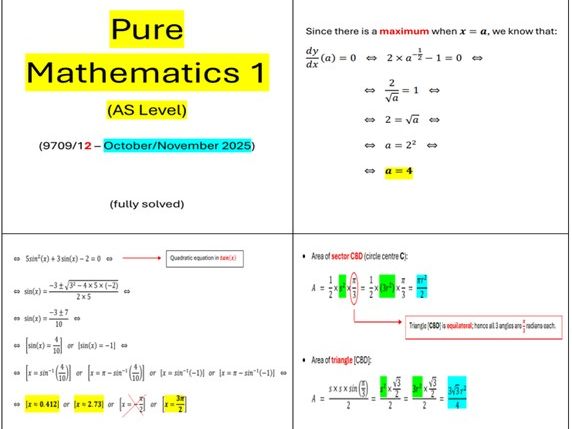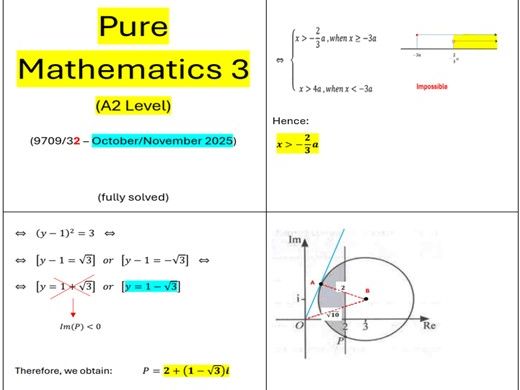Ffsampaio's Shop
In this shop, you may find several resources related with the process of teaching and learning Mathematics, following an international curriculum based on the Pure Mathematics and Further Pure Mathematics programs. Among other, you can find power-points especially designed to help students and teachers with detailed explanations, diagrams, comments and worked examples as well as fully solved exam-style questions.




















